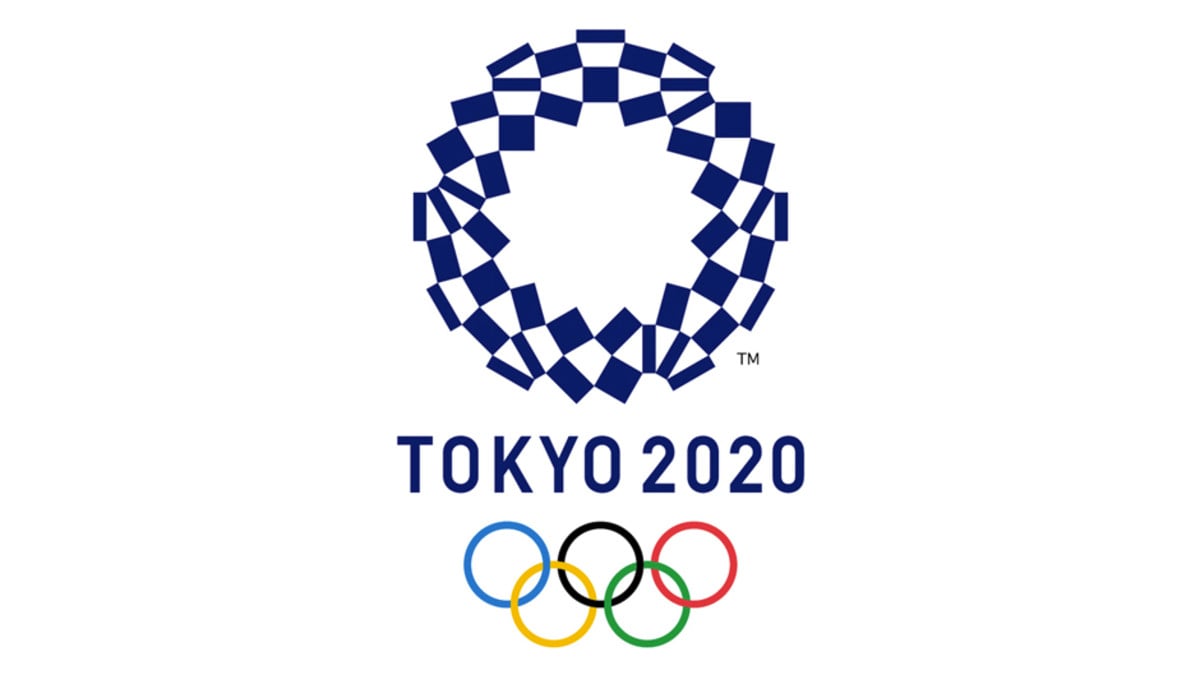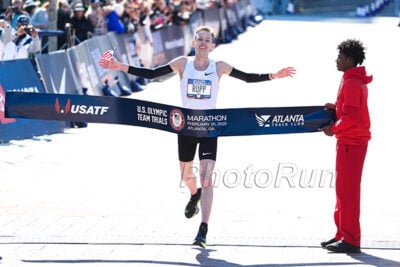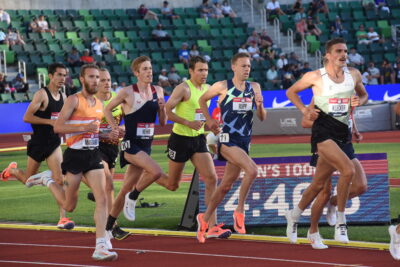Can Galen Rupp Win the Olympic Marathon?
Mike Smith Says Rupp’s Training Has Been “Fantastic.”
Rupp Would Be First American Man to Win in 49 Years
By Jonathan Gault
August 6, 2021
Galen Rupp could retire today and his status would be secure as one of American distance running’s all-time greats. Few can rival his resume: six NCAA titles at the University of Oregon, 11 US titles as a professional, an American record at 10,000 meters, and two Olympic medals.
The question, as Rupp heads into his fourth Olympic Games, is whether those two medals — a silver in the 10,000 meters in London in 2012 and a bronze in the marathon in Rio in 2016 — represent the peak of his career or a prelude to an even greater accomplishment, one he has been chasing for the better part of two decades: an Olympic gold medal.
The United States dominates the Olympics, and it dominates track & field most of all. Of the 1,022 Olympic gold medals won by American athletes entering Tokyo 2020, 335 have come in track & field — more than any other sport. Those 335 golds are more than the golds won by rest of the top 10 countries in track & field combined.
Recently, however, those golds have been concentrated in the sprints and field events. Over the last half-century, just five American distance runners have stood atop an Olympic podium: Frank Shorter and Dave Wottle in 1972, Joan Benoit Samuelson in 1984, Matthew Centrowitz in 2016, and now Athing Mu in 2021. It is an exclusive club.
It would not be accurate to describe this year’s Olympic marathon, to be contested in Sapporo on August 8, the final day of the Games, as Rupp’s last chance at gold. He will be 38 and 42 during the next two Olympics; considering the United States has sent a 41-year-old (Meb Keflezighi) and a 44-year-old (Abdi Abdirahman) to the last two Olympics, Rupp could well have more Games in his future. But these opportunities do not come along often. Making it to the start line of an Olympic marathon fit and healthy is half the battle, one Rupp appears to have succeeded in this year.
That just leaves the second, tougher half: the race itself. Can Galen Rupp win the Olympic marathon? What will it take? Let’s dig in.
A new era
Rupp enters this year’s Olympic marathon in a very different place than 2016. Back then, you could barely call him a marathoner: he had run only one marathon prior to Rio (his debut victory at the Trials) and contested the Olympic marathon just eight days after finishing 5th in the 10,000 meters.
In 2021, there has been no equivocating. Rupp did run the 10,000 meters at the Olympic Trials (and finished a creditable 6th), but there is no doubt where his focus lies. It has been marathon all the way.
Rupp, of course, has a different coach as well. After being guided since high school by Alberto Salazar, Rupp’s training has been led by Northern Arizona University coach Mike Smith since the end of 2019, when Salazar was banned for four years for anti-doping violations.
And then there was the Achilles injury that sidelined Rupp for a year — the first major one of his career. From October 2018 until February 2020, Rupp did not finish a race. He got it together in time to make the Olympic team at the Trials last year in Atlanta, but thanks to the pandemic delay, he has had another 17 months to continue rebuilding his fitness, compared to the five months he would have had if the Olympics had not been postponed.
During that span, Rupp has run some solid races, including a 60:22 half in October 2020, and a 27:59 10k in June to finish 6th at the Olympic Trials — a result Smith says he was “ecstatic” about given Rupp’s marathon focus. Rupp has had some minor setbacks during his marathon buildup, not uncommon for a 35-year-old, but nothing significant.
“I compare a lot of the data from that preparation to now and I think everything is ahead of schedule compared to the information I had then,” Smith tells LetsRun.com. “His 10-12 weeks leading into this, his volume is fantastic, his workouts are fantastic.”
The biggest difference between the Trials and the Olympics, Smith says, is that Rupp will be facing a significantly stronger field. The Olympic marathon features multiple men who have run several minutes faster than Rupp’s 2:06:07 pb. He will not be allowed to dictate terms as he did in Atlanta.
“Galen was in control in a lot of that competition and that may not be the case in this one,” Smith says. “His fitness is stronger, but certainly how that fitness is applied makes a big difference.”
The case for Rupp
If Galen Rupp were Kenyan or Ethiopian, chances are he would not even be at the Olympics, let alone contending for a medal. It’s unlikely he’s beating out Eliud Kipchoge or Lawrence Cherono (defending Boston/Chicago champ) for a spot on the Kenyan team, and the third Kenyan, Amos Kipruto, has been running better than Rupp in recent years (bronze at ’19 Worlds, 2:03:30 at ’20 Valencia). Likewise, he’s likely not beating out Shura Kitata (London champ) or Lelisa Desisa (four major wins, reigning world champ) for a spot on the Ethiopian team, and while he did beat the third Ethiopian, Sisay Lemma, in Prague in 2018, Lemma has run 2:04, 2:03, 2:04, and 2:05 since then with three WMM podium finishes since then. Rupp has run 2:06 and 2:09 with zero WMM podium finishes.
But the same could be said about Meb Keflezighi in 2004 or Rupp himself in 2016. The Olympic marathon tests different skills than a major marathon. It is not about how fast you can run with a fleet of pacers towing you along. It is about survival and focus. Rupp is excellent at both.
Over the years, Rupp has also shown himself to be a terrific heat runner. And even though the marathon was moved from Tokyo to avoid the heat, the conditions in Sapporo on the morning of August 8 still look to be very tough, in the 70s and humid. That should benefit Rupp. Smith says Rupp has worked with USOPC physiologist Randy Wilber to prepare for the heat and humidity, but believes part of Rupp’s advantage in the heat is self-generated.
“He would have preferred they held it in downtown Tokyo and it was as hot as possible and as miserable as possible,” Smith says. “His mind is pretty incredible with that stuff. I think he just thinks it’s an advantage, the harder the better, because his mind won’t crack and other people will. I think he thinks it’s an advantage, so that’s what makes it an advantage.”
The most impressive thing about Rupp’s preparation, Smith says, was not the workouts or the heat preparation. It was Rupp’s decision to spend most of his final months ahead of Sapporo training with Smith in Flagstaff. Rupp has spent most of his time as a marathoner at sea level in Portland, and though his house is fitted with an oxygen-stripping device that can simulate 10,000 feet of elevation, it can’t totally replace the real thing. Rupp’s altitude camp in Flagstaff is proof that, at age 35, the fire still burns brightly. And Smith believes the gains are real.
“I think his aerobic system is getting a jolt,” Smith says. “At the place he’s at in his career, most athletes at his age, their aerobic system is pretty topped-off. You can’t run 200 miles a week. But I think the fact that he hadn’t been to real altitude in a couple years and put himself there for a few months — he’s got four kids, [he’s] away from his family and all that — is, I think, the most impressive part of his training because it has forced an adaptation to the aerobic system, which most people aren’t getting at his age.”
And when Rupp really focuses in on an event, he usually delivers. He has never “bombed” at a Worlds or Olympics. He has dropped out of two marathons, but one was 2018 Boston (where half the elite field dropped out) and the other was 2019 Chicago, when he was not close to healthy. Rupp generally produces a strong performance. Whether that is good enough to win is another question…
The case against Rupp
Rupp’s consistency will certainly help him in Sapporo. All marathons feature their share of underperformers, whether due to the conditions, injury, or bad luck, and that is especially true for the Olympic marathon. In 2016, Stanley Biwott was the clear #2 in the field behind Kipchoge and wound up dropping out. In 2012, the entire Ethiopian team dropped out. There will be casualties.
The problem, for Rupp, is that that there are 16 men on the entry list with faster than pbs than him. Even if half those guys bomb in Sapporo, Rupp will still have to beat a bunch of quality athletes.
And unfortunately for Rupp, the chances of all of the Ethiopians bombing again are lower than in years past as the Ethiopian federation decided to use a trials race rather than selecting its team off by time. That brought its own issues — it’s a fairly quick 14-week turnaround from the 35k trials race and the marathon in Sapporo — but the trials accomplished two key things: 1) it selected a team of guys who have run in a championship-style race; 2) it selected a team of guys who are fit right now. Both are an upgrade on previous years.
Looking specifically at the marathon field in Sapporo, there are four guys who are definitively better marathoners than Rupp: Eliud Kipchoge, Lawrence Cherono, Lelisa Desisa, Shura Kitata. All have won multiple majors in recent years aside from Kitata, but Kitata is arguably the man to beat from that group as he won the strongest marathon of 2020 (London) and finished first at the Ethiopian trials. If any one of those men runs their best race, they will beat Rupp. Throw in the dozen or so guys around Rupp’s level — including Bashir Abdi of Belgium, Surugu Osako of Japan, Callum Hawkins of Great Britain — and there are a lot of bodies to overcome.
And of course, the very best guy in the field is also the most consistent marathoner of his generation: Kipchoge. Counting Breaking2 and the INEOS 1:59 Challenge, Kipchoge has run precisely one bad marathon in 16 attempts at the distance. Which means he runs well 94% of the time (and wins 86% of the time). You can make the argument that Kipchoge is getting older (he’s 36) and will eventually fall off…but he still ran 2:04:30 in April.
Even Smith acknowledges that while Rupp has a “very contained” range of outcomes — translation: Rupp is good at getting the most out of himself, and that “most” is usually enough to put him near the front — there is simply no way to play defense in the marathon. If Kipchoge runs like Kipchoge, Rupp is in trouble.
“[Galen] is a competitor, he’s typically run well at Olympic Games and World Championships,” Smith says. “I’ve never coached him at one of those events, but I like what I see. But he can only control himself. And that’s the problem with ‘can he win the race?’ You can run the best race you can run and you can’t control [the outcome].”
The verdict
The odds, undoubtedly, are stacked against Galen Rupp, as they are against every Olympic marathoner; even someone as good as Kipchoge probably has a less than 50% shot at winning. This is also a stronger, deeper field than five years ago in Rio. Hell, Kenya picked Wesley Korir for their team in 2016! This year, Athletics Kenya didn’t make any glaring mistakes, and while the Ethiopian trials process was fraught with confusion, there is no doubt Ethiopia is sending a strong team (even without Kenenisa Bekele).
Plus the Japanese team is far better than in 2016 as well and will be running with extra motivation at a home Olympics. Remember, Suguru Osako beat Rupp in their last race at 2018 Chicago, has a faster pb (2:05:29), and beat Rupp head-to-head in the 10k at the Portland Track Festival in May…and Osako was only third at the Japanese trials. Callum Hawkins of Great Britain, fourth at the last two World Championships, is a far better runner than he was in 2016.
Still, Rupp is one of a dozen guys with a shot, and his championship pedigree is better than most of the men in the field.
Can Galen Rupp win the Olympic marathon? Look at the list of Olympic marathon champions. There are legends like Emil Zatopek, Abebe Bikila, Sammy Wanjiru, and Kipchoge. But there are also names like Josia Thugwane, Stefano Baldini, and Stephen Kiprotich. A guy like Rupp — who owns two Olympic medals and a major marathon title (2017 Chicago) — can absolutely win the Olympic marathon. It’s just not very likely.



